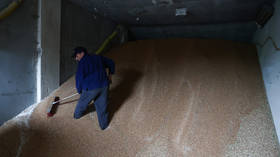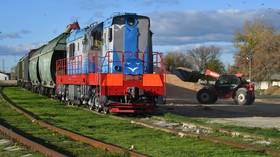Poland ready to fight EU over Ukrainian grain – media

Polish officials fear retaliation from individual EU member states if Warsaw proceeds with plans to ban Ukrainian grain from its market, in breach of the bloc’s policies, local media have reported.
Up to 20 of the union’s 27 member states oppose extending the current EU-endorsed ban on the importation of some Ukrainian products by five nations that border the country, RFM radio reported on Saturday.
Brussels initially imposed the measure at the request of Poland, Hungary, Romania, Slovakia and Bulgaria when Ukrainian produce flooded their markets. The countries want the ban to remain in place until at least the end of the year, rather than expiring on September 15.
Polish Agriculture Minister Robert Telus stated last month that his government would impose a unilateral ban if the EU fails to accede to this request. Warsaw did just that in April, before the European Commission reluctantly backed down and extended the ban officially.
Sources cited by RFM said Polish authorities were concerned about the prospect of unilateral retaliation by countries such as Germany, which would likely be imposed more quickly than an equivalent response by the European Commission.
Romania does not want confrontation, one source suggested. If the other border countries concede and only Poland and Hungary reintroduce the ban, Brussels would pull no punches in its response, according to the outlet.
The five nations were also involved in talks with the Commission and Ukraine over possible EU subsidies for grain transit, Polish Radio reported on Saturday. Brussels could reportedly spend up to €30 ($32.60) per ton of grain to boost the profitability of Ukrainian exports.
Poland and its allies are seeking to tie the subsidies to the continuation of restrictions on imports, the outlet said.
The EU lifted import tariffs and quotas on Ukrainian products last year to support its war effort against Russia. The cheap grain caused turmoil in Eastern European markets and sparked mass protests by farmers.














